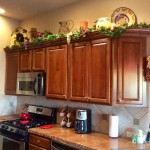Unique Home Decor Business Names: A Guide to Inspiration and Branding
Selecting a business name for a home decor venture is a foundational step toward establishing a brand identity and attracting potential customers. A well-chosen name can communicate the style, values, and unique selling proposition of the business. Conversely, a poorly conceived name can hinder brand recognition and limit market appeal. This article explores key considerations and strategies for developing distinctive and effective business names for a home decor enterprise.
Understanding the Importance of a Strong Business Name
A business name serves as the initial point of contact between the company and its target audience. It's a vital component of the branding process, influencing customer perceptions and contributing to overall brand recall. In the competitive home decor market, differentiation is essential, and a memorable, relevant name can provide a significant advantage. Beyond mere aesthetics, a well-crafted name should align with the business's long-term goals and facilitate marketing efforts.
Consider the long-term implications of the name. Will it still be relevant as the business evolves and expands its product offerings? Does it lend itself to a strong visual identity, such as a logo and website design? These are crucial questions to address during the naming process. A robust business name is not just a label; it's an investment in the future of the company.
Legal considerations are also paramount. Before finalizing a name, it is critical to conduct thorough trademark searches to avoid potential conflicts with existing businesses. Registering the business name and securing a domain name are also essential steps in protecting the brand identity.
Strategies for Generating Creative Name Ideas
Brainstorming is a crucial stage in the naming process. Exploring various avenues and approaches can help generate a diverse range of potential names. These approaches could include focusing on the following key aspects:
*Style and aesthetic:
The names can evoke the feelings it’s meant to evoke. *Target audience:
The names can cater to a specific segment of the home decor market *Geographic location:
The names can reflect the business's local roots.Consider using compound words, combining relevant terms to create unique and memorable names. For instance, "RusticCharm Decor" or "UrbanEdge Interiors." Another technique is to explore synonyms related to the business's core offerings. If the business specializes in minimalist design, words like "simplicity," "clarity," and "essence" can be used as starting points.
Abstract names can also be effective, particularly if the business aims to project an image of sophistication and innovation. However, abstract names require careful consideration of branding and messaging to ensure that the target audience understands the business's core values and offerings.
It's beneficial to create a list of keywords related to home decor, interior design, and the specific style or niche the business caters to. These keywords can be combined, modified, or used as inspiration for generating potential names. Online name generators and brainstorming tools can also be helpful in sparking creativity and exploring different naming options. Consider names that elicit emotion. The best way to do this is by associating it with something that consumers are familiar with and have positive feelings for. For example, naming a home decor store something like "Ocean Breeze Interiors" might illicit a positive feeling of relaxation and calmness for some.
Key Attributes of an Effective Business Name
Beyond creativity, certain characteristics are essential for an effective business name. These include memorability, pronounceability, relevance, and availability. A name that is easy to remember and pronounce is more likely to be shared and recommended by customers.
Relevance is also crucial. The name should provide some indication of the business's offerings or the style of home decor it specializes in. This helps potential customers quickly understand what the business is about and whether it aligns with their needs. While a name should be relevant, it should also be unique enough to stand out from the competition.
The name must be distinctive and memorable. Shorter names are often easier to remember, but longer names can also be effective if they are catchy and well-chosen. A unique selling proposition of a business ( USP ) can be incorporated into the name. For example, "SustainableHome Decor" if the business focuses on eco-friendly products.
Consider the visual appeal of the name. Does it look good in print and online? Does it translate well into a logo? These are essential considerations when evaluating potential names. The name should also be easy to spell, to prevent customers from having difficulty finding the business online or referring it to others.
Before settling on a name, test it with potential customers. Gather feedback on its appeal, memorability, and relevance. This can provide valuable insights and help identify any potential issues or misconceptions. A soft launch of the name can also give data on how the name is being received.
Avoiding Common Naming Pitfalls
Several common pitfalls can hinder the effectiveness of a business name. These include using generic or overly common names, selecting names that are difficult to pronounce or spell, and choosing names that are too limiting or restrictive. Avoiding these pitfalls is essential for creating a name that stands the test of time and supports the business's growth.
Generic names fail to differentiate the business from its competitors. Names such as "Home Decor Store" or "Interior Design Services" lack originality and fail to capture the unique essence of the brand. Similarly, names that are difficult to pronounce or spell can create confusion and hinder word-of-mouth marketing.
Names that are too limiting can restrict the business's future growth and expansion. For instance, a name that focuses on a specific style of home decor, such as "Mid-Century Modern Furnishings," might limit the business's ability to offer other styles in the future. Additionally, avoid using names that are culturally insensitive or that could be perceived as offensive.
Avoid trends when naming. You might see a lot of other businesses using the same word in their names and it could be tempting to do the same, but if this name ever goes out of style it could be a detriment to the business. It's better to stick with something more classic.
Thoroughly research the chosen name to ensure it does not have any negative connotations in other cultures or languages.
Leveraging Technology and Resources
Numerous online tools and resources can assist in the business naming process. Domain name registrars, trademark databases, and business name generators can provide valuable information and inspiration. Social media platforms can also be used to gauge interest in potential names and gather feedback from a wider audience.
Domain name availability is a critical factor in the naming process. A business should secure a domain name that closely matches its chosen name to establish a strong online presence. Social media handles should also be secured to maintain a consistent brand identity across all platforms.
Consulting with branding experts or marketing professionals can provide valuable insights and guidance. These professionals have the experience and expertise to help businesses develop names that are both creative and effective. They can also assist with trademark searches and other legal considerations.
Moreover, technology can make the process of discovering a business name much easier. Many online resources compile lists of adjectives, nouns, and verbs which can be used in countless combinations to achieve an appropriate name.In summary, selecting a business name is a crucial decision that requires careful consideration of various factors. By understanding the importance of a strong name, employing creative naming strategies, and avoiding common pitfalls, businesses can create names that resonate with their target audience and support their long-term success. The name should meet the set of criteria that the owner has established for their business. This includes considering the business goals, the target market, and what the brand identity is going to be.

660 Best Home Decor Business Names Ideas

399 The Most Amazing Home Decor Business Names Ideas Informative House

30 Interior And Home Decor Company Names Ideas

Business Name Ideas For An Interior Design 64f229ed1e1e0

756 Best Home Decor Business Names Ideas List Whiz Start

820 Catchy Home Decor Business Name Ideas 2025

Top 500 Home Decor Business Names To Elevate Your Brand

270 Best Interior Decorating Business Names

800 Catchy Home Design Business Name Ideas 2025

300 Lucky Trendy Home Decor Business Names 2025
Related Posts







